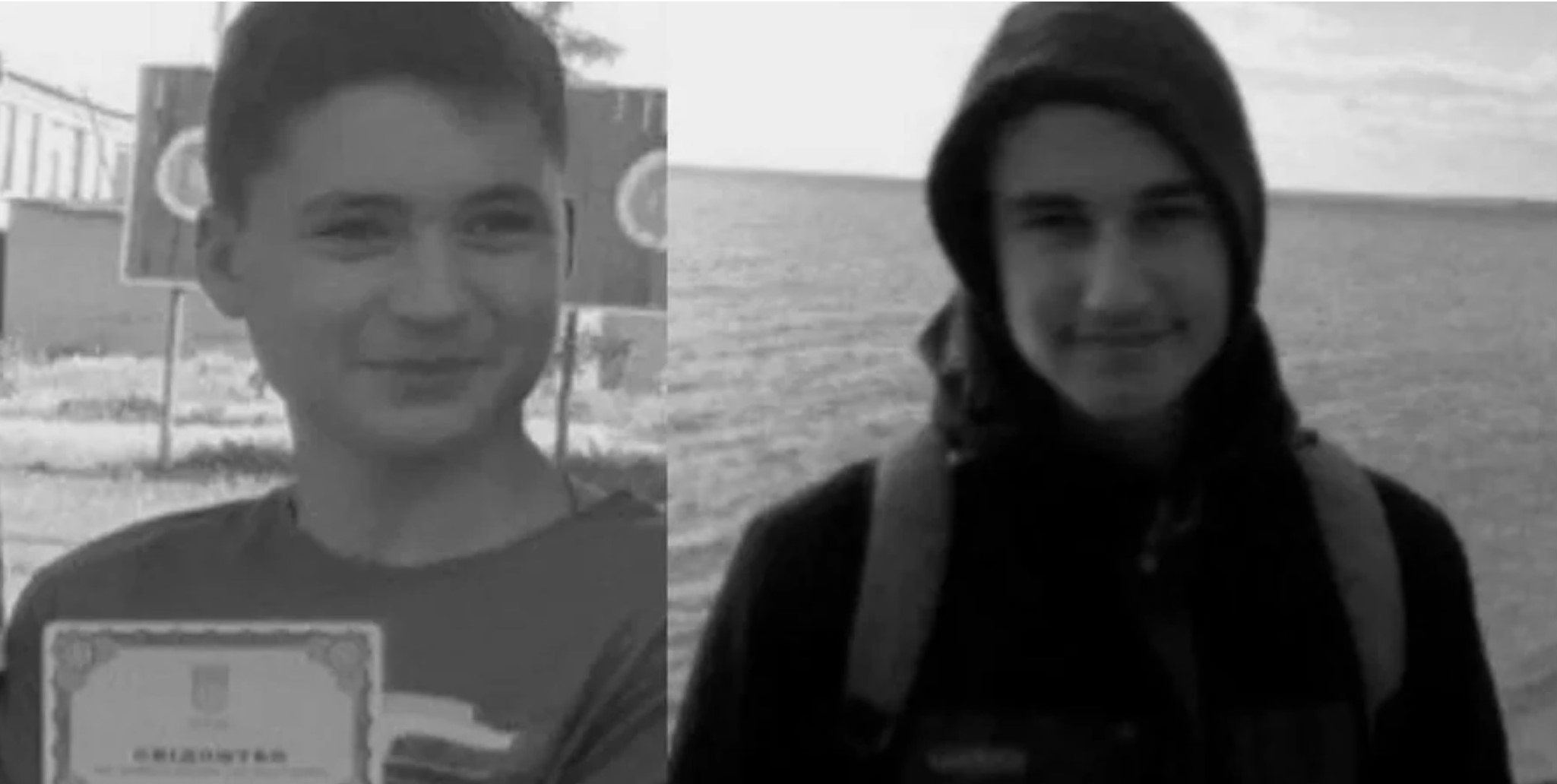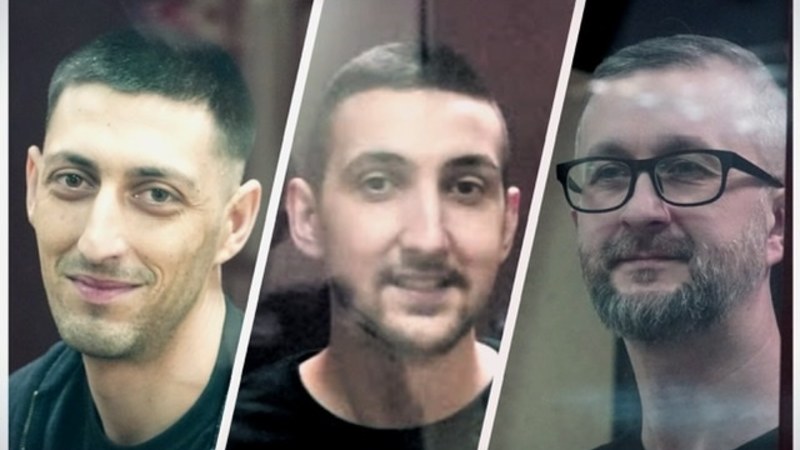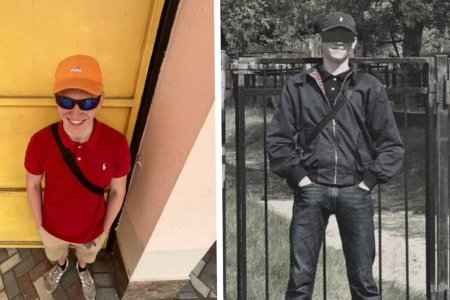
On 11 November, Russia’s State Duma adopted a bill which significantly increases penalties for so-called sabotage and other crimes, as well as lowering the age from which criminal liability begins from 16 to 14. The Russian FSB are deservedly notorious for the methods they use to fabricate sabotage prosecutions, with detainees very often tortured into providing one or even multiple crimes. At least four 16-year-old Ukrainian lads have already been killed in highly suspicious circumstances. Tihran Ohannisian and Mykyta Khanharov were killed on 23 June 2023, in what the FSB claimed was a shootout with enforcement bodies. They refused to hand over the bodies for burial and blocked any proper investigation. Even less is known about the deaths of Danylo Dakhov and Pavlo Hrymak in April 2024, but there are no grounds for trusting the FSB. The latter claimed that the boys had blown themselves up with a homemade explosive device when they had, in fact, already been in Russian captivity for 10 months.

There is, in short, every reason to fear that the FSB will use similar methods against 14- and 15-year-olds.
Most of the reports suggest that the bill is about liability for so-called ‘sabotage’, however Mediazona reports that the list of articles of Russia’s criminal code include a number of charges under Russia’s extremely flawed terrorism legislation. That will mean that 14-year-olds could face imprisonment and long sentences for something that Russia is calling ‘abetting’ or ‘financing’ terrorism (Article 205.1 of Russia’s criminal code). In February 2025, Ivan Semykoz from occupied Bilovodsk (Luhansk oblast) was sentenced to eight and a half years’ imprisonment with Russia claiming that the young man, who had been a teenager at the time, had ‘financed terrorism’ by making a donation to Ukraine’s Azov Regiment. The latter is part of Ukraine’s Armed Forces, however Russia uses such grotesque claims because of a politically motivated supreme court ruling from 2 August 2022 which claimed, without any justification, that ‘Azov’ is a terrorist organization.
Abuse of Russia’s legislation on ‘sabotage’ is also prevalent, with the FSB believed to use provocateurs, as well as torture to extract ‘confessions’. Once Russian leader Vladimir Putin has signed the bill rushed through in its second and third readings on 11 November, the methods can be used against children from the age of 14.
The bill also increases the punishment for the alleged sabotage and terrorism crimes. Any existing time bars have been abolished, and the bill prohibits the use of suspended sentences and restricts any possibility of early release. There will also be no possibility of passing a sentence that is lower than that stipulated in the criminal code. The latter is another blow since Russian judges never dare to acquit political prisoners, but have in some cases effectively acknowledged the lack of any basis for the prosecution by handing down lower sentences.
The sentence for drawing minors into sabotage or terrorist activists has been increased, with even life sentences now possible. Another disturbing addition is that a person designated as ‘organizer’ can now be charged, not only with leading a saboteur group, but with all crimes allegedly committed by other members.
The distinction between ‘sabotage’ and ‘terrorism’ often seems arbitrary and, in some cases, may be due to where Moscow prefers a ‘trial’ to take place. Russia almost certainly preferred to hide its revenge persecution and ‘trial’ of Crimean Tatar Mejlis leader, journalist and human rights defender Nariman Dzhelyal by holding the ‘trial’ in occupied Crimea.
The Piervy Otdiel [First Department] human rights group reports that more than 500 people are facing prosecution on charges of sabotage or of setting fire to military recruitment offices “in Russia”, with that statistic possibly including occupied Crimea. Arson attacks on military recruitment offices are most often classified as ‘terrorist attacks’, whereas similar arson against railway signal boxes; stations or even attacks on trains themselves tend to be treated as sabotage.
There are constantly reports of such attacks being ‘commissioned’ for remuneration, with those placing the ‘orders’ anonymous. Human rights groups suspect that such ‘orders’ can be placed by provocateurs from the FSB, with the essentially guaranteed convictions and long sentences very often based solely on ‘confessions’, extracted through torture.
Russia began staging ‘Crimean saboteur trials’ in 2016, with the same practice having now being applied on other occupied territory.

It is exactly nine years since three friends – two academics – Dmytro Shtyblikov and Oleksiy Bessarabov – and retired naval captain Volodymyr Dudka were seized in occupied Sevastopol. There was no proof of the grandiose plot claimed by the FSB, with the ‘investigators’ resorting to torture and shoddy fabrication of ‘evidence’. The men are all still serving horrific sentences (see: Nine years in Russian captivity after Russia’s ‘shoddiest’ show trial and no end in sight? ).
The same is true of the ‘sabotage trial’ of Nariman Dzhelyal and two cousins – Asan Akhtemov and Aziz Akhtemov. Dzhelyal was released in 2024, in a prisoner exchange, however Asan and Aziz remain imprisoned, with their 15 and 13-year sentences based solely on ‘testimony’ extracted through torture (and retracted) (See: Open war against Crimean Tatars began long before Russia’s full-scale invasion of Ukraine )

The following are just some of the Ukrainian political prisoners sentenced on evidently fabricated ‘sabotage’ charges. These cases, as well as the killing of 16-year-old Tihran Ohannisian: Mykyta Khanharov; Danylo Dakhov and Pavlo Hrymak make it clear that the new law provides more weapons of repression, and has nothing to do with fighting crime.
Danylo Dakhov and Pavlo Hrymak Russia kills two 16-year-olds, tortures and imprisons three other lads from occupied Melitopol
Tihran Ohannisian and Mykyta Khanharov
Russia secretly buries the bodies of the Ukrainian teenagers it murdered in occupied Berdiansk
Mykola Dzhosh Ukrainian abducted, tortured and sentenced to life because Ukraine carried out an attack on Russian invaders
Diliaver Kurshutov Telling omissions in Russia's show trial claiming Ukraine’s use of 'chemical weapons of mass destruction'
Mykola Budanovsky Russian invaders sentence Melitopol resident to 18 years for brazenly fake ‘thwarted saboteur plot’



